Immunology 2011™ – The American Association of Immunologists
IMMUNOLOGY 2011™ Program
Except where noted, sessions are at the Moscone Center
Printable Program at a Glance | Online Itinerary Planner
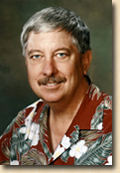
AAI President's Address and Presentation of AAI Excellence in Mentoring Award
Friday, May 13, 5:00 PM
Room 134-135
AAI President's Address
Jeffrey A. Frelinger
University of Arizona,
AAI President
Life in the MHC
Jenny P-Y. Ting, University of North Carolina Lineberger Comprehensive Cancer Center
Introduction
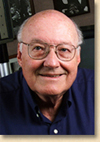
AAI Excellence in Mentoring Award
Friday, May 13, 5:00 PM, Room 134-135
Chair:
Jeff Frelinger, University of Arizona, AAI President
Award Recipient: Michael B. A. Oldstone, M.D., The Scripps Research Institute
Elina Zuniga, University of California, San Diego, IntroductionThe AAI Excellence in Mentoring Award recognizes an AAI member's exemplary career contributions to a future generation of scientists. The award will be presented prior to the start of the AAI President's Address.
AAI President's Symposium and
Presentation of AAI Lifetime Achievement Award
AAI President's Symposium
Beyond Vaccines: Translating Immunology
Monday, May 16, 3:30 PM, Room 134-135
Chair: Jeffrey A. Frelinger, University of Arizona, AAI President
Speakers:
Jonathan S. Serody, University of North Carolina at Chapel Hill, Stem cell transplantation: from the miraculous to the mundane
Ellen S. Vitetta, University of Texas Southwestern Medical Center, Redesigning nature's poisons for biomedicine and biodefense
Thomas F. Tedder, Duke University Medical Center, B lymphocytes: from humoral immunity to immunotherapy
Jan T. Vilcek, New York University School of Medicine, Infliximab: how a TNF inhibitor advanced from modest beginnings to unforeseen therapeutic successes
 |
 |
 |
 |
Jonathan Serody | Ellen Vitetta | Thomas Tedder | Jan Vilcek |
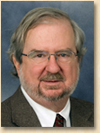
AAI Lifetime Achievement Award
Monday, May 16, 3:30 PM, Room 134-135
Chair:
Jeff Frelinger, University of Arizona, AAI President
Award Recipient: James P. Allison, Ph.D., HHMI, Memorial Sloan-Kettering Cancer Center
The AAI Lifetime Achievement Award is the highest honor bestowed by the AAI Council upon an AAI member. This award recognizes a deserving member for a career of scientific achievement and for contributions to AAI and fellow immunologists. The award will be presented prior to the start of the AAI President's Symposium.
Distinguished Lectures
Generously supported by eBioscience, Inc.
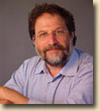
Saturday, May 14, 5:30 PM, Room 134-135
Jeffrey V. Ravetch, Rockefeller University
The antibody paradox
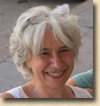
Sunday, May 15, 5:30 PM, Room 134-135
Ann Marshak-Rothstein, University of Massachusetts Medical School
From PAMPs to DAMPs to SLE
Monday, May 16, 5:30 PM, Room 134-135
Jason G. Cyster, HHMI, University of California, San Francisco
Lymphocyte migration and the humoral immune response
Major Symposium A – Immunological Insights into Vaccine Development
Saturday, May 14, 8:00 AM – 11:30 AM, Room 134
Chairs:
Robert A. Seder, NIAID, NIH
M. Julie McElrath, Fred Hutchinson Cancer Research Center
Speakers:
Bali Pulendran, Emory Vaccine Center, Systems vaccinology
Robert A. Seder, NIAID, NIH, Targeting dendritic cells in vivo with protein vaccines to elicit T cell immunity
David L. Woodland, Trudeau Institute, Inc., Regulation of T cell immunity in the lung
M. Julie McElrath, Fred Hutchinson Cancer Research Center, Prospects for protection against HIV-1 infection by vaccine-induced immunity
Gary J. Nabel, NIAID, NIH, Rational immune design of AIDS and influenza vaccines
Ursula Krzych, Walter Reed Army Institute of Research, Memory CD8 T cells specific for Plasmodia pre-erythrocytic (liver) stage antigens
Major Symposium B – Immune Cell Metabolism in Lymphocyte Development, Function, and Survival
Saturday, May 14, 8:00 AM – 11:30 AM, Room 135
Chairs:
Jonathan D. Powell, Johns Hopkins University School of Medicine
Jeffrey C. Rathmell, Duke University
Speakers:
Andrew L. Mellor, Medical College of Georgia, Telling Tregs how to behave: IDO-competent dendritic cells are pivotal regulators of Tregs in physiologic settings
Erika L. Pearce, Trudeau Institute, Inc., Metabolic regulation of CD8 T cell memory development
Jeffrey C. Rathmell, Duke University, ERR-alpha and metabolic control of CD4+ subsets
Xiaoxia Li, Cleveland Clinic Foundation, The role of IL-1-induced mTOR activation in Th17 cell expansion
Jonathan D. Powell, Johns Hopkins University School of Medicine, The mammalian Target of Rapamycin (mTOR) provides a critical link between T cell differentiation, function, and metabolism
Douglas R. Green, St. Jude Children's Research Hospital, Fueling immunity: the role of Myc in metabolic reprogramming of activated T lymphocytes
Major Symposium C – Immune Regulation of Chronic Infection and Vice Versa
Sunday, May 15, 8:00 AM – 11:30 AM, Room 134
Chairs:
Ann B. Hill, Oregon Health & Science University
David M. Lewinsohn, Portland Veterans Affairs Medical Center / Oregon Health and Science University
Speakers:
Ann B. Hill, Oregon Health and Science University, Cytomegalovirus and T cells: mechanism and cost of a lifelong obsession
Philip G. Ashton-Rickardt, Imperial College London, Forward genetic analysis of T cell immunity to chronic viral infection
Bette T. Korber, Los Alamos National Laboratory, Vaccine design concepts for HIV, a highly variable pathogen
David M. Lewinsohn, Portland Veterans Affairs Medical Center / Oregon Health and Science University, Recognition of intracellular infection with Mycobacterium tuberculosis: the blurred line between innate and adaptive T cells
Margaret A. Goodell, Baylor College of Medicine, Impact of infectious stress on hematopoietic stem cell function
Erik S. Barton, Wake Forest University Health Sciences, Symbiosis and subversion: cooperation between a gammaherpesvirus and host interferons during latent infection
Major Symposium D – B Cells as Effectors
Sunday, May 15, 8:00 AM – 11:30 AM, Room 135
Chairs:
Frances E. Lund, University of Rochester Medical Center
Alison Finnegan, Rush University Medical Center
Speakers:
Kishore R. Alugupalli, Thomas Jefferson University, B1b lymphocytes occupy a unique functional niche in anti-bacterial immunity
John F. Kearney, University of Alabama at Birmingham, Modulation of allergic asthma and type one diabetes by B cells and antibodies
Frances E. Lund, University of Rochester Medical Center, Regulation of DC and CD4 T cell responses by effector B cells
Geetha Chalasani, University of Pittsburgh School of Medicine, The role of B cells in shaping alloreactive T cell immunity
Hooman Noorchashm, University of Pennsylvania School of Medicine, B lymphocyte repertoire remodeling and transplantation tolerance
Alison Finnegan, Rush University Medical Center, B cells in autoimmune arthritis
Major Symposium E – Innate Immunity: Flexibility in Sensing, Signaling, and Cellular Responses
Monday, May 16, 8:00 AM – 11:30 AM, Room 134
Chairs:
Christine A. Biron, Brown University
Ricardo T. Gazzinelli, Fundacao Oswaldo Cruz and University of Massachusetts Medical School
Speakers:
Ricardo T. Gazzinelli, Fundacao Oswaldo Cruz and University of Massachusetts Medical School, Endosomal TLRs as critical sensors for protozoan parasites
Daniel A. Portnoy, University of California, Berkeley, Role of macrophage cytosolic surveillance pathways during infection and immunity
Siamon Gordon, University of Oxford, Macrophage receptors and innate immunity
Matteo Iannacone, Harvard Medical School and San Raffaele Scientific Institute, Antiviral immune responses in lymph nodes
Marco Colonna, Washington University School of Medicine, RNA sensors, infections, and autoimmunity
Christine A. Biron, Brown University, After sensing: shaping innate immunity to viral infections
Major Symposium F – Antigen Processing and Presentation: Shaping the Immune Response to Vaccines, Autoantigens, and Pathogens
Monday, May 16, 8:00 AM – 11:30 AM, Room 135
Chairs:
Lisa K. Denzin, Memorial Sloan-Kettering Cancer Center
Andrea J. Sant, University of Rochester
Speakers:
Paul A. Roche, NCI, NIH, MHC class II trafficking and function in dendritic cells
Andrea J. Sant, University of Rochester, Competitive events during CD4 T cell response to antigens and pathogens
Lisa K. Denzin, Memorial Sloan-Kettering Cancer Center, Modulation of MHC class II antigen presentation has profound effects on immune function
Victor H. Engelhard, University of Virginia School of Medicine, Tolerogenic direct antigen presentation by subsets of lymph node stromal cells
Ted H. Hansen, Washington University School of Medicine, Microbes, MR1, and mucosal associated invariant T cells
Michael B. Brenner, Brigham and Women's Hospital/Harvard Medical School, Pathways of lipid antigen presentation by CD1
Major Symposium G – Leukocyte Migration in Inflammation, Infection, and Cancer
Tuesday, May 17, 8:00 AM – 11:30 AM, Room 134
Chairs:
Andrew D. Luster, Massachusetts General Hospital, Harvard Medical School
Gudrun F. Debes, University of Pennsylvania School of Veterinary Medicine
Speakers:
Andrew D. Luster, Massachusetts General Hospital, Harvard Medical School, Lipid-cytokine-chemokine cascades control leukocyte recruitment in inflammation
Gudrun F. Debes, University of Pennsylvania School of Veterinary Medicine, Lymphocyte recirculation in acute and chronic inflammation
Michael L. Dustin, New York University School of Medicine, Role of innate and antigen-specific signals in migration at sites of infection
Kamal Mohan Khanna, University of Connecticut Health Center, Visualizing the endogenous CD8 T cell response to infection
Sharon S. Evans, Roswell Park Cancer Institute, IL-6 trans-signaling licenses tumor microvascular gateways for trafficking of cytotoxic T cells
Philip M. Murphy, NIAID, NIH, Chemokine regulation of leukocyte egress from the bone marrow: insights from the clinic
Major Symposium H – Dendritic Cells in Sensing Self and Non-Self
Tuesday, May 17, 8:00 AM – 11:30 AM, Room 135
Chairs:
Anna Karolina Palucka, Baylor Institute for Immunology Research and Mt. Sinai School of Medicine
Ira Mellman, Genentech, Inc.
Speakers:
Boris Reizis, Columbia University Medical Center,
Signaling pathways controlling dendritic cell differentiation
Ken Shortman, The Walter and Eliza Hall Institute,
Modulating the immune responses of newly-formed dendritic cells
Franck Barrat, Dynavax Technologies Corporation, TLR recognition of self nucleic acids in acute and chronic inflammation
Virginia Pascual, Baylor Institute for Immunology Research,
Neutrophil-plasmacytoid dendritic cell interplay in lupus
Ira Mellman, Genentech, Inc., Cell biology of dendritic cell function
Anna Karolina Palucka, Baylor Institute for Immunology Research and Mt. Sinai School of Medicine, Dendritic cells and immunity against cancer
Annually recognizing immunologists of extraordinary professional achievement and promise, the AAI Career Awards include:
• AAI Lifetime Achievement Award
• AAI Distinguished Service Award
• AAI Excellence in Mentoring Award
• AAI-Life Technologies Meritorious Career Award
• AAI Award for Human Immunology Research
• AAI-BD Biosciences Investigator Award

AAI Excellence in Mentoring Award Presentation
Friday, May 13, 5:00 PM, Room 134-135
Chair:
Jeff Frelinger, University of Arizona, AAI President
Award Recipient: Michael B. A. Oldstone, M.D., The Scripps Research Institute
Elina Zuniga, University of California, San Diego, IntroductionThe AAI Excellence in Mentoring Award recognizes an AAI member's exemplary career contributions to a future generation of scientists. The award will be presented prior to the start of the AAI President's Address.
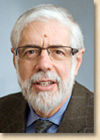
AAI Award for Human Immunology Research Presentation and Lecture
Saturday, May 14, 1:30 PM – 2:30 PM, Room 134-135
Chair:
Jeff Frelinger, University of Arizona, AAI President
Award Recipient:
Ellis L. Reinherz, M.D., Harvard Medical School
When pull comes to push in TCR-based adaptive immunity: generation of protection
AAI President Jeff Frelinger will introduce the awardee and present the award. Immediately following this short presentation, Dr. Reinherz will deliver a lecture.
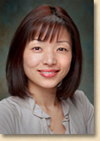
AAI-BD Biosciences Investigator Award Presentation and Lecture
Generously supported by BD Biosciences
Saturday, May 14, 4:00 PM – 5:00 PM, Room 134-135
Chair:
Jeff Frelinger, University of Arizona, AAI President
Award Recipient:
Akiko Iwasaki, Ph.D., Yale University School of Medicine
Mechanisms of innate and adaptive antiviral responses
AAI President Jeff Frelinger and BD Biosciences Vice President of Biological Sciences Robert Balderas will introduce the awardee and present the award. Immediately following this short presentation, Dr. Iwasaki will present a lecture.
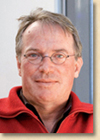
AAI-Life Technologies Meritorious Career Award Presentation and Lecture
Generously supported by Life Technologies Corporation
Sunday, May 15, 4:00 PM – 5:00 PM, Room 134-135
Chair:
Jeff Frelinger, University of Arizona, AAI President
Award Recipient: Hidde Ploegh, Ph.D., Whitehead Institute for Biomedical Research
Host-pathogen interactions exploited to study the immune system: a biochemical perspective
AAI President Jeff Frelinger and Chockalingam Palaniappan, Ph.D., of Life Technologies Corporation (formerly Invitrogen) will introduce the awardee and present the award. Immediately following this short presentation, Dr. Ploegh will deliver a lecture.

AAI Lifetime Achievement Award Presentation
Monday, May 16, 3:30 PM, Room 134-135
Chair:
Jeff Frelinger, University of Arizona, AAI President
Award Recipient: James P. Allison, Ph.D., HHMI, Memorial Sloan-Kettering Cancer Center
The AAI Lifetime Achievement Award is the highest honor bestowed by the AAI Council upon an AAI member. This award recognizes a deserving member for a career of scientific achievement and for contributions to AAI and fellow immunologists. The award will be presented prior to the start of the AAI President's Symposium.
AAI Distinguished Service Award Presentations
Monday, May 16, 1:00 PM – 2:30 PM, Room 130
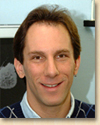
Arthur Andrew Hurwitz, Ph.D., National Cancer Institute, NIH
For outstanding service to AAI and the immunology community by initiating education and awards programs to advance the careers of young scientists
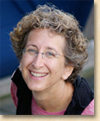
Terri M. Laufer, M.D., University of Pennsylvania
For outstanding service to AAI and the immunology community as Director of the AAI Introductory Course in Immunology, 2006 - 2011
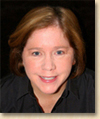
Nancy E. Street, Ph.D., University of Texas Southwestern Medical Center
For outstanding service to AAI as Chair of the AAI Membership Committee 2004- 2011
In addition to Career Awards, AAI annually provides more than 200 AAI meeting travel awards and grants to recognize the promise and bolster the professional development of young investigators, trainees, and underrepresented minority scientists and trainees.
- AAI Junior Faculty Travel Grants
- AAI Minority Scientist Travel Awards
- AAI Trainee Abstract Awards
- AAI-Life Technologies Trainee Achievement Awards
- Cynthia Chambers Memorial-eBioscience Junior Faculty Award
- Pfizer-Showell Travel Award
- AAI Laboratory Travel Grants
For information on all AAI Awards, visit www.aai.org/Awards.
AAI Clinical Immunology Committee
Beyond Flow, Spots, and Westerns: Systems Approaches to Immunology
Saturday, May 14, 3:30 PM – 5:30 PM, Room 121/124
Chair:
Kathleen E. Sullivan, Children's Hospital of Philadelphia; Chair, AAI Clinical Immunology Committee
Co-chair:
Cathryn Nagler, University of Chicago; Co-Chair, AAI Clinical Immunology Committee
Speakers:
Judy H. Cho, Yale School of Medicine, Refining causal alleles at autoimmune genetic loci through fine-mapping and RNASeq
Damien Chaussabel, Benaroya Research Institute, Assessing immune function through blood transcriptomics
Nir Hacohen, Massachusetts General Hospital, Harvard Medical School, Uncovering innate immune pathways using RNAi
Lishan Su, University of North Carolina, Chapel Hill, Modeling HIV/HCV immunopathology and therapy in humanized mice
The complexities of the human immune system can rarely be addressed by simple experimental approaches. The constant development of new technologies is broadening our understanding of disease and immune function and opening new avenues for therapeutic development. This session will feature some of the new approaches that have the potential to revolutionize immunological research.
AAI Committee on Public Affairs
Got Funding? Why Your Voice is Needed on Capitol Hill
Saturday, May 14, 11:30 AM – 1:00 PM, Room 111
Chair:
Jeffrey A. Frelinger, University of Arizona
Speakers:
Paul M. Allen, Washington University
Gail A. Bishop, University of Iowa
Olivera J. (Olja) Finn, University of Pittsburgh
 |
 |
 |
 |
Jeff Frelinger | Paul Allen | Gail Bishop | Olja Finn |
Join AAI President Jeff Frelinger, former AAI Presidents Paul Allen and Olja Finn, and AAI Councillor Gail Bishop at a special advocacy luncheon to be held at IMMUNOLOGY 2011™. Sponsored by the AAI Committee on Public Affairs, the discussion will focus on the importance of scientists-as-advocates in advancing biomedical research and address key policy issues, visiting Capitol Hill, and ways to get involved with AAI public affairs activities. Participants will have the opportunity to meet informally with AAI leaders, members of the AAI Committee on Public Affairs, and the AAI public affairs staff. Open to all AAI members. Space is limited, and an application to attend is required.
AAI Committee on the Status of Women
There and Back Again: Career Transitions between Academia, NIH, and Industry
Friday, May 13, 2:30 PM – 4:30 PM, Room 131
Chair:
Bonnie Dittel, Blood Center of Wisconsin Blood Research Institute; Chair, AAI Committee on the Status of Women
Speakers:
Lewis L. Lanier, University of California, San Francisco, From academics to biotech and back
Mary E. Keir, Genentech, Inc., My recent move into industry: how it happened and what I’ve learned
Jane R. Parnes, Amgen, Inc., Moving from academia to industry: blending the best of both
Susan Plaeger, NIAID, NIH, From faculty to fed: moving from the bench to a desk
Opportunities in immunology extend far beyond the academic lab. Skilled investigators make their contributions to the field also in industry and NIH, as well as other government agencies, and institutes/foundations. Each of the panelists in this session has enjoyed a successful research career involving transitions between academia and industry or NIH. Attend this session to learn what such transitions entail when one goes either direction on the career path.
AAI Education Committee
AAI High School Teacher Summer Research Program Workshop: Lessons in Immunology
Saturday, May 14, 9:00 AM – 12:00 PM, Room 120
Chair:
Brian A. Cobb, Case Western Reserve University School of Medicine; Chair, AAI High School Teacher Summer Research Program
Speakers:
Hadiya Woodham, Ph.D., The Park School of Baltimore, Baltimore, MD
Mentor: Andrei Medvedev, Ph.D., University of Maryland School of Medicine, Baltimore, MD
Victor Rodriguez, Southwest High School, San Diego, CA
Mentor: Wendy Havran, Ph.D., The Scripps Research Institute, La Jolla, CA
John Goudie, Ed.D., Kalamazoo Area Math and Science Center, Kalamazoo, MI
Mentor: Terecita D. Yule, Ph.D., Pfizer, Inc., Kalamazoo, MI
Jon Pazol, West Leyden High School, Northlake, IL
Mentor: Stephen D. Miller, Ph.D., Northwestern University Feinberg School of Medicine, Chicago, IL
Oanh Lo, Marble Hill School for International Studies, Bronx, NY
Mentor: Fotini Gounari, Ph.D., The University of Chicago, Chicago, IL
The AAI High School Teacher Summer Research Program brings the excitement of immunology directly to high school students through curricula developed by participating high school teachers. This program pairs high school science teachers with established AAI member immunologists who mentor them in their laboratories in a "hands-on" summer internship. The teachers develop a science project for the classroom based on their summer research experience. In this session, 2010-2011 participating high school teachers will present their experiences and projects.
AAI Education Committee and AAI Committee on the Status of Women
Careers in Science Lecture and Roundtable
Sunday, May 15, 12:30 PM – 2:30 PM, Room 102
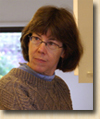
Chair:
Bonnie N. Dittel, BloodCenter of Wisconsin; Chair, AAI Committee on the Status of Women
Keynote Speaker:
Ellen Robey, Professor of Immunology and Pathogenesis, University of California, Berkeley, Hidden rewards of the research-family balancing act
Registration fee: $20 (Lunch included.)
This always popular session opens this year with Ellen Robey, University of California, Berkeley, investigator and professor, offering guidance for achieving distinction in one's field while balancing the demands of research, service to one's profession, and commitment to family. She will share lessons learned with her family that have helped her as a researcher and lessons learned in her lab that have helped her as a parent. Roundtable discussions follow, led by experienced scientists on specific career issues and options. Attendance is limited. Registrations will be accepted on a first-come, first-served basis.
Table discussion topics and leaders:
- Academic Research Careers
Table Leaders: Andrew Mellor, Ph.D., Medical College of Georgia; Patricia Cortes, Ph.D., Mount Sinai School of Medicine - Mentoring Effectively
Table Leaders: Scheherezade Sadegh-Nasseri, Ph.D., Johns Hopkins University Medical School; Jenny P. Ting, Ph.D., University of North Carolina, Chapel Hill; Ellen Vitetta, Ph.D., University of Texas Southwestern Medical Center - Networking Skills
Table Leader: Olivera J. (Olja) Finn, Ph.D., University of Pittsburgh School of Medicine - Career and Family: time management/family leave/professional couples
Table Leaders: Patricia Fitzgerald-Bocarsly, Ph.D., UMDNJ; Cathryn Nagler, Ph.D., University of Chicago - Careers in Biotech and Industry: moving from academia to industry and vice versa; differences and similarities in work environment
Table Leaders: Jane R. Parnes, M.D., Amgen; Dzung Nguyen, Ph.D., BioLegend; Theresa Schaub, Ph.D., eBioscience; Matt Slater, Ph.D., eBioscience - Careers at Governmental Agencies (FDA/NIH)
Table Leaders: Susan Plaeger, Ph.D., NIAID, NIH; Arthur "Andy" Hurwitz, Ph.D., CCR, NCI, NIH - Career Decisions after Tenure: leadership opportunities, challenges of interruptions of funding
Table Leader: Gerald Sonnenfeld, Ph.D., Clemson University - Graduate Student to Postdoc: finding a postdoc, interviewing
Table Leaders: Michelle A. Parent, Ph.D., University of Delaware; Jill Slansky, Ph.D., University of Colorado, Denver - New PI: attracting students and postdocs, preparing for tenure
Table Leaders: Gregory M. Barton, Ph.D., University of California, Berkeley; Frances E. Lund, Ph.D., University of Rochester Medical Center - Non-Research Careers: science journals and magazines, scientists engaged in public affairs, careers in scientific non-profits; unique careers that utilize your training
Table Leaders: Evelyn Strauss, Ph.D., Executive Editor, Multiple Sclerosis Discovery Forum, Accelerated Cure Project for Multiple Sclerosis; William Simmons, Ph.D., Sughrue Mion, PLLC (intellectual property practice); M. Michele Hogan, Ph.D., American Association of Immunologists; Lauren Gross, J.D., American Association of Immunologists; Jennifer Meyers, Ph.D., The Journal of Immunology. - Postdoc to PI: finding a position, interviewing, negotiating, lab start-up
Table Leaders: Roberta Pelanda, Ph.D., National Jewish Medical Research Center; Michele M. Kosiewicz, Ph.D., University of Louisville School of Medicine - Translational Research: how to balance clinical duties and research
Table Leader: Terri M. Laufer, M.D., University of Pennsylvania - Undergraduate Institutions: teaching, doing research
Table Leader: Sharon A. Stranford, Ph.D., Mt. Holyoke College
AAI Membership Committee
New Member Reception
Friday, May 13, 4:00 PM – 4:45 PM
By Invitation
New Regular and Trainee members joining AAI for the first time may take this opportunity to meet the AAI Council, the Membership Committee members, as well as other AAI leaders for casual conversation and refreshments.
AAI Minority Affairs Committee
Careers and Networking Roundtable
Saturday, May 14, 11:45 AM – 1:15 PM, Room 102
Don't miss this opportunity to meet one-on-one with accomplished, senior minority immunologists to hear how they have handled the career challenges you now face. Learn what they believe will work for you today.
Registration fee: $20 (Lunch included.)
Topics to be discussed:
- Grad Student: Finding a mentor; taking aim at postdoc training
Table Leaders: Joseph Larkin, III, Ph.D., University of Florida; Marcos E. García-Ojeda, Ph.D., University of California, Merced; Tonya J. Webb, Ph.D., University of Maryland School of Medicine - Postdoc: Finding a mentor; taking aim at a faculty position
Table Leaders: Jose R. Conejo-Garcia, M.D., Ph.D., The Wistar Institute; Thandi Onami, Ph.D., University of Tennessee - Junior Faculty: Preparing for promotion and tenure
Table Leaders: Adrianna T. Larregina, Ph.D., University of Pittsburgh School of Medicine; Avery August, Ph.D., Cornell University College of Veterinary Medicine - Academia or Industry: How to decide (or switch sides)
Table Leaders: Margaret S. Bynoe, Ph.D., Cornell University College of
Veterinary Medicine; Jennifer Solomon Tan, Ph.D., Senior Field Scientist, Miltenyi Biotec Inc. - Government Agency Careers: CDC, FDA, NIH
Table Leaders: Prosper N. Boyaka, Ph.D., Ohio State University; Charles E. Egwuagu, MPH, Ph.D., National Eye Institute, NIH - Non-Research Careers: Science journalism, patent law
Table Leaders: John Emrich, Ph.D., Science Writer, AAI; Carolyn A. Favorito, J.D., Knobbe Martens Olson & Bear (patent law)
Minority Affairs Committee Guest Lecture
Monday, May 16, 11:30 AM – 12:30 PM, Room 121/124
Generously supported through a grant from the National Institute of General Medical Sciences, NIH [FASEB MARC Program: T36-GM08059-28]
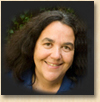
Chair:
Prosper Boyaka, The Ohio State University; Chair, AAI Minority Affairs Committee
Olivia M. Martinez, Stanford School of Medicine, Effects of viral proteins on lymphocyte function in Epstein Barr Virus B cell lymphomas
AAI Publications Committee
In the Lion's Den: The Manuscript Review Process and How to Survive It
Saturday, May 14, 11:30 AM – 1:30 PM, Room 132
Chair:
Paul E. Love, NICHD, NIH; Chair, AAI Publications Committee
Co-Chair:
Jeremy M. Boss, Emory University School of Medicine; Editor-in-Chief, The Journal of Immunology
Speakers:
Juan Carlos Zúñiga-Pflücker, University of Toronto, I clicked submit; what happens next?
Melissa A. Brown, Northwestern University, Making it easier for the reviewer
Peter E. Jensen, University of Utah, It's not personal: responding to reviewers
Jeremy M. Boss, Emory University School of Medicine, STATs, FACS™, and lies we tell
Even the best data benefits from good presentation. Understanding the steps involved in the manuscript review process can help authors anticipate and address reviewers' expectations. What steps can an author take to improve data presentation? What will make the manuscript easier for the reviewer to read and evaluate? How can the author best respond to reviewers? Attend this session to learn the answers to these and other questions about scientific publishing.
AAI Veterinary Immunology Committee and American Association of Veterinary Immunologists (AAVI) Joint Symposium
From Stem Cells to Xenografts: Advancing Transplantation Using Large Animal Models
Saturday, May 14, 3:30 PM – 5:30 PM, Room 130
Chair:
Simon M. Barratt-Boyes, University of Pittsburgh; Chair, AAI Veterinary Immunology Committee
Co-Chair:
Gary Splitter, University of Wisconsin, Madison
Speakers:
Rainer Storb, Fred Hutchinson Cancer Research Center, Allogeneic hematopoietic cell transplantation: lessons from random-bred dogs for clinical translation
Robert E. Donahue, NHLBI, NIH, Gene transfer and hematopoietic stem cell transplantation in rhesus macaques: lessons learned
Janis L. Abkowitz, University of Washington, Understanding hematopoietic stem cell decision-making and potential: insights from studies in cat and baboon
David K.C. Cooper, University of Pittsburgh Medical Center, Outwitting evolution: recent progress in xenotransplantation research
Although mice are frequently used for transplant immunology research, large animals more accurately reflect the complexity of immunity in humans and can even find direct clinical utility as sources of xenotransplants. Come to this session to learn about the latest progress in large animal models of transplantation and the potential of these studies for enhancing clinical transplantation success.
AAI is joined by the following guest societies presenting two-hour symposia in special disciplines. Participating Guest Societies at IMMUNOLOGY 2011™:
AAI Veterinary Immunology Committee and American Association of Veterinary Immunologists (AAVI) Joint Symposium
From Stem Cells to Xenografts: Advancing Transplantation Using Large Animal Models
Saturday, May 14, 3:30 PM – 5:30 PM, Room 130
Chair:
Simon M. Barratt-Boyes, University of Pittsburgh; Chair, AAI Veterinary Immunology Committee
Co-Chair:
Gary Splitter, University of Wisconsin, Madison
Speakers:
Rainer Storb, Fred Hutchinson Cancer Research Center, Allogeneic hematopoietic cell transplantation: lessons from random-bred dogs for clinical translation
Robert E. Donahue, NHLBI, NIH, Gene transfer and hematopoietic stem cell transplantation in rhesus macaques: lessons learned
Janis L. Abkowitz, University of Washington, Understanding hematopoietic stem cell decision-making and potential: insights from studies in cat and baboon
David K.C. Cooper, University of Pittsburgh Medical Center, Outwitting evolution: recent progress in xenotransplantation research
Although mice are frequently used for transplant immunology research, large animals more accurately reflect the complexity of immunity in humans and can even find direct clinical utility as sources of xenotransplants. Come to this session to learn about the latest progress in large animal models of transplantation and the potential of these studies for enhancing clinical transplantation success.
American Society for Blood and Marrow Transplantation (ASBMT)
Adoptive Therapy with T Lymphocytes
Monday, May 16, 8:00 AM – 10:00 AM, Room 120/123
Chair:
A. John Barrett, NHLBI, NIH
Speakers:
A. John Barrett, NHLBI, NIH, Refining the allogeneic graft-versus-leukemia effect
Laurence J. N. Cooper, MD Anderson Cancer Center, Gene-modified T cells
Catherine M. Bollard, Baylor College of Medicine, Virus-specific T cells
Denis-Claude Roy, Hôpital Maisonneuve-Rosemont, Selective depletion of the alloresponse
American Society of Transplantation (AST)
Integrins as an Effective Target in Alloimmune Responses
Sunday, May 15, 3:30 PM – 5:30 PM, Room 120/123
Co-chairs:
Robert L. Fairchild, Cleveland Clinic Foundation
Andrew D. Wells, University of Pennsylvania, Children's Hospital of Pennsylvania
Speakers:
Timothy A. Springer, Harvard Medical School, Integrins and tissue inflammation
Ronald G. Gill, University of Colorado Denver, LFA-1 plays multiple roles in the alloreactive response to transplanted organs
Denise Lo, Emory University, Adhesion molecules as therapeutic targets in transplantation
Andrew M. Posselt, University of California, San Francisco, Efalizumab in clinical islet and renal transplantation
British Society for Immunology (BSI)
Immunity at Barriers and Barriers to Immunity
Monday, May 16, 3:30 – 5:30 PM, Room 131
Chair:
Cecilia Johansson, Imperial College
Speakers:
Adrian C. Hayday, King's College London and Cancer Research UK, Lymphoid stress - surveillance by intraepithelial T cells has profound adjuvant effects
David Artis, University of Pennsylvania School of Medicine, Regulation of immunity and inflammation at barrier surfaces
Cecilia Johansson, Imperial College London, Innate immune responses to viruses
Yasmine Belkaid, NIAID, NIH, Microbial control of tissue homeostasis
Douglas T. Fearon, University of Cambridge, FAP-expressing stromal cells and host response to tumors
Canadian Society for Immunology (CSI)
Self-Non-Self Discrimination by Natural Killer Cells
Saturday, May 14, 12:30 PM – 2:30 PM, Room 133
Co-chairs:
Kevin P. Kane, University of Alberta
Silvia M. Vidal, McGill University
Speakers:
Kevin P. Kane, University of Alberta, What is self for inhibitory Ly49? Role of MHC-bound peptide
Silvia M. Vidal, McGill University, MHC class I receptors and their ligands modulate the NK cell antiviral response
James R. Carlyle, University of Toronto, MHC-independent missing self
Deborah N. Burshtyn, University of Alberta, Members of the leukocyte receptor complex and human MHC I
Chinese Society of Immunology (ChSI)
Omics in Immunology
Monday, May 16, 10:15 AM – 12:15 PM, Room 130
Co-chairs:
Xuetao Cao, National Key Laboratory of Medical Immunology, Second Military Medical University
Olivera J. Finn, University of Pittsburgh
Speakers:
Xuetao Cao, National Key Laboratory of Medical Immunology, Second Military Medical University, mrRNomes in immune cells
Jing Cheng, Tsinghua University, Biochips and clinicomic study
Xuejun Zhang, Anhui Medical University, Genome-wide association study identifies new susceptibility loci for human autoimmune diseases
Xueming Zhang, National Center of Biomedical Analysis, Proteomic analysis of signal pathways
Nan Shen, Shanghai Jiaotong University, MicroRNA-mediated immune dysregulation in lupus
International Society of Developmental and Comparative Immunology (ISDCI)
Evolution of Immune Recognition: Insights from Non-Mammalian Animal Models
Saturday, May 14, 10:15 AM – 12:15 PM, Room 130
Chair:
J. Oriol Sunyer, University of Pennsylvania School of Veterinary Medicine
Speakers:
Anthony De Tomaso, University of California, Santa Barbara, Molecular mechanisms underlying allorecognition in a basal chordate
Gerardo R. Vasta, University of Maryland School of Medicine, Lectin-ligand interactions in innate immunity of invertebrates and ectothermic vertebrates
John D. Hansen, U.S. Geological Survey and University of Washington, Participation of the zebrafish inflammasome for Francisella-mediated pathogenesis
Carol H. Kim, University of Maine, Evolving function of Toll-like receptor signaling
International Society for Interferon and Cytokine Research (ISICR)
Antiviral Innate Immunity
Sunday, May 15, 12:30 PM – 2:30 PM, Room 121/124
Co-chairs:
Charles E. Samuel, University of California, Santa Barbara
Ganes C. Sen, Cleveland Clinic Foundation
Speakers:
Ganes C. Sen, Cleveland Clinic Foundation, Gene induction-dependent and independent cellular antiviral responses
Michale Gale, Jr., University of Washington School of Medicine, Innate immune control of RNA virus infection
Charles E. Samuel, University of California, Santa Barbara, Tipping the balance: ADAR deaminase and PKR kinase display opposing roles in innate immunity
Warner C. Greene, University of California, San Francisco, APOBEC3 cytidine deaminases: an innate defense against endogenous retroelements and exogenous retroviruses
International Society of Neuroimmunology (ISNI)
Leukocyte Migration in Neuroimmunologic Disease
Monday, May 16, 10:15 AM – 12:15 PM, Room 131
Co-chairs:
Caroline C. Whitacre, Ohio State University
Michael K. Racke, Ohio State University Medical Center
Speakers:
Michael K. Racke, Ohio State University Medical Center, Immune surveillance of the CNS: lessons learned from natalizumab
Nancy H. Ruddle, Yale University School of Medicine, An in vivo approach to understanding leukocyte movement through high endothelial venules and lymphatic vessels
Anthony J. Slavin, Boehringer-Ingelheim, Translating S1P agonism
Tal Arnon, University of California, San Francisco, Regulation of sphingosine-1-phosphate receptor signaling during lymphocyte trafficking
Mexican Society of Immunology (MSI)
Immunology Taught by Influenza A (H1N1) 2009: From Inflammation to Memory Generation and Vaccine Development
Sunday, May 15, 3:30 PM – 5:30 PM, Room 130
Co-chairs:
Constantino López-Macías, Mexican Social Security Institute (IMSS)
César González Bonilla, Mexican Social Security Institute (IMSS)
Speakers:
César González Bonilla, Mexican Social Security Institute (IMSS), Infection and death from Influenza A (H1N1) 2009 in Mexico
Lourdes Arriaga-Pizano, Mexican Social Security Institute (IMSS), Circulating pro-inflammatory markers in patients infected with Influenza A (H1N1) 2009
Arturo Cérbulo-Vázquez, National Institute of Perinatology, Ministry of Health, Mexico City, Influenza A (H1N1) 2009 antibody responses in pregnant woman
Jesús Martínez-Barnetche, National Public Health Institute, Ministry of Health, Cuernavaca, Novel perspectives in lymphocyte repertoire analysis: perspectives in the study of immune response to pandemic influenza vaccination
Constantino López-Macías, Mexican Social Security Institute (IMSS), Antibody responses and memory generation in healthy volunteers induced by a novel influenza A (H1N1) 2009 pandemic virus-like particle vaccine during the outbreak in Mexico
Society for Glycobiology
Glycans in the Immune System: Physiology and Pathophysiology
Sunday, May 15, 12:30 PM – 2:30 PM, Room 131
Chair:
Steven D. Rosen, University of California, San Francisco
Co-chair:
Minoru Fukuda, Sanford-Burnham Medical Research Institute
Speakers:
Cynthia J. Guidos, Hospital for Sick Children, Modulation of Notch-dependent hematopoietic fates by Fringe glycosyltransferases
Minoru Fukuda, Sanford-Burnham Medical Research Institute, Endothelial heparan sulfate controls chemokine presentation in the recruitment of lymphocytes and dendritic cells to inflammatory sites
Lijun Xia, Oklahoma Medical Research Foundation, Innate immunity is essential for the initiation of colitis in mice lacking intestinal mucin-type O-glycans
Michael Demetriou, University of California, Irvine, Dysregulation of galectin-N-glycan interactions in T cell-mediated autoimmunity
Ajit Varki, University of California, San Diego, Two human-specific mechanisms for chronic inflammation
Society for Leukocyte Biology (SLB)
Emerging Paradigms in Inflammatory Signaling
Sunday, May 15, 10:15 AM – 12:15 PM, Room 120/123
Co-chairs:
Xiaoxia Li, Cleveland Clinic Foundation
Thomas A. Hamilton, Cleveland Clinic Foundation
Speakers:
David M. Mosser, University of Maryland, College Park, Macrophage heterogeneity during infectious and inflammatory diseases
Clifford A. Lowell, University of California, San Francisco, Tyrosine kinases and phosphatases in inflammation and autoimmunity
Elizabeth J. Kovacs, Loyola University, Alcohol-mediated effects on macrophage activation
Thomas A. Hamilton, Cleveland Clinic Foundation, Signaling pathways for IL-17-mediated chemokine mRNA stabilization
Society of Mucosal Immunology (SMI)
Regulation of Immunologic Diseases by Gut Commensals
Saturday, May 14, 12:30 – 2:30 PM, Room 121/124
Co-chairs:
Charlotte S. Kaetzel, University of Kentucky College of Medicine
Scott B. Snapper, Massachusetts General Hospital/Harvard Medical School
Speakers:
Sarkis K. Mazmanian, California Institute of Technology, The role of microbiota in shaping adaptive immunity within and outside the gut
Wendy Garrett, Harvard School of Public Health, Gut microbial communities and colitogenic microbes in colitis
Hsin-Jung (Joyce) Wu, Harvard Medical School, A link between gut microbiota, mucosal immunity, and autoimmune arthritis
Andrew T. Gewirtz, Emory University School of Medicine, TLR5-mediated protection against enteric bacteria
Society for Natural Immunity (SNI)
NK Cell Functions and Antiviral Defense
Saturday, May 14, 3:30 PM – 5:30 PM, Room 133
Co-chairs:
Anthony R. French, Washington University School of Medicine
Jordan S. Orange, University of Pennsylvania School of Medicine
Speakers:
Yenan T. Bryceson, Karolinska Institute, NK cell signal integration
Anthony R. French, Washington University School of Medicine, NK cell proliferation during viral infection
Angela Santoni, University of Rome La Sapienza, Control of NK cell receptor-ligand interactions
Jordan S. Orange, University of Pennsylvania School of Medicine, Regulation of NK cell cytotoxicity through the lytic immunological synapse
James P. Di Santo, Institut Pasteur, NK cell development and differentiation
Society of University Surgeons (SUS)
Sensing the Danger Within: How the Host Recognizes and Responds to Stress
Monday, May 16, 12:30 PM – 2:30 PM, Room 131
Co-chairs:
David J. Hackam, University of Pittsburgh School of Medicine
John C. Alverdy, University of Chicago
Speakers:
David J. Hackam, University of Pittsburgh School of Medicine, Sensing danger in the gut: the role of intestinal epithelial innate immunity in the pathogenesis of intestinal inflammation
Timothy R. Billiar, University of Pittsburgh School of Medicine, Recognition and response of organ injury after trauma by the innate immune system
John C. Alverdy, University of Chicago, How microbial communities within the host sense and respond to trauma and stress
Rosemary Kozar, University of Texas Medical School at Houston, Sensing intestinal nutritive signals within the injured gut
The following NIH Institutes will present special symposia at IMMUNOLOGY 2011™:
National Cancer Institute (NCI)
Emerging Concepts of Exosome-Mediated Cell-Cell Communication
Monday, May 16, 8:00 – 10:00 AM, Room 133
Co-chairs:
Huang-Ge Zhang, University of Louisville
T. Kevin Howcroft, NCI, NIH
Speakers:
B. Matija Peterlin, University of California, San Francisco, Biogenesis and function of Nef exosomes in HIV infection
Clotilde Théry, INSERM Institut Curie, Roles of exosomes in communication between tumors and the immune system
Theresa L. Whiteside, University of Pittsburgh Cancer Institute, Immunoinhibitory activities of tumor-derived microvesicles (exosomes) and their clinical relevance to cancer progression in man
Huang-Ge Zhang, University of Louisville, Reversing tumor exosome-mediated immunosuppression by targeting delivery of anti-inflammation drugs
National Institute of Allergy and Infectious Diseases (NIAID)
Mechanisms of Antibody-Mediated Protection from HIV in Humans and Non-Human Primates
Monday, May 16, 12:30 PM – 2:30 PM, Room 120/123
Co-chairs:
Stacy Ferguson, DAIT, NIAID, NIH
Anthony Conley, DAIDS, NIAID, NIH
Moderator:
Douglas F. Nixon, University of California, San Francisco
Speakers:
Margaret E. Ackerman, Dartmouth College, How antibodies provide specificity to the innate immune system to fight HIV
M. Anthony Moody, Duke University, Human antibody repertoire produced in HIV infection and vaccination
Joern E. Schmitz, Beth Israel Deaconess Medical Center, Harvard Medical School, Humoral immune responses and SIV infection: a complex relationship
Donald N. Forthal, University of California, Irvine, Fcγ receptor-mediated antibody functions and their role in HIV vaccines
National Institute of Arthritis and Musculoskeletal and Skin Diseases (NIAMS)
Progress in Skin Inflammation
Saturday, May 14, 10:15 AM – 12:15 PM, Room 131
Co-chairs:
Stephen I. Katz, NIAMS, NIH
Robert H. Carter, NIAMS, NIH
Speakers:
Rachael A. Clark, Harvard Medical School, Migration of T cell subsets in human skin: lessons from alemtuzumab
Daniel H. Kaplan, University of Minnesota, Delineating functionally distinct dendritic cell subsets in the skin
John R. Stanley, University of Pennsylvania, Genetic and pathological characterization of cloned human monoclonal pemphigus antibodies
Robert L. Modlin, University of California, Los Angeles, Vitamin D regulates the immune response to infection in skin
National Institute on Aging (NIA)
Rejuvenating the Aging Thymus: Mechanisms of Thymic Involution
Saturday, May 14, 8:00 AM – 10:00 AM, Room 121/124
Co-chairs:
Rebecca A. Fuldner, NIA, NIH
Kenneth Dorshkind, University of California, Los Angeles
Speakers:
Nancy R. Manley, University of Georgia, The rise and fall of the thymic microenvironment
Bruce R. Blazar, University of Minnesota, Mechanisms of thymic epithelial cell involution in aging
Vishwa Deep Dixit, Pennington Biomedical Research Center, Fat street: route to age-related thymic demise
Kenneth Dorshkind, University of California, Los Angeles, Aging and lymphopoiesis: causes, consequences, and reversal
Through workshops, roundtables, and one-on-one counseling, IMMUNOLOGY 2011™ provides critical career development programs.
Career sessions and services this year include:
- Boot Camp for New Faculty (a half-day course)
Generously supported by BD Biosciences - Careers in Science Lecture and Networking Roundtables (2)
- How to Convert Your CV into a Resumé (followed by one-on-one counseling)
- Interviewing for a Job
- Secrets for a Successful Postdoctoral Fellowship
- There and Back Again: Career Transitions between Academia, NIH, and Industry
- In the Lion's Den: The Manuscript Review Process and How to Survive It
- Meet the AAI Leaders (invitation only)
- AAI is also offering an online Jobs Board to meeting registrants and exhibitors.
Session Descriptions
Boot Camp for New Faculty
Generously supported by BD Biosciences
Friday, May 13, 12:00 PM – 4:00 PM, Room 104
Chair:
Donna M. Murasko, Dean, College of Arts and Sciences, Drexel University
You want to have your own lab, you love research, and maybe your first grant application looks promising. How are you going to go about it all? The logistics of setting up a lab can be daunting, but experts in the field of immunology are here to help you get started by addressing the following topics.
Registration fee: $110 (Lunch included.)
- How do you set up a lab?
- Mitchell Kronenberg, Director, La Jolla Institute for Allergy and Immunology
- How to:
- negotiate a start-up package
- hire/choose people to staff your lab
- set up and manage your first lab
- recognize ethical issues in the laboratory
- You have a position in academe, now what?
- Donna M. Murasko, Dean, College of Arts and Sciences, Drexel University
- How to:
- learn what it takes to get promoted/tenure
- balance you responsibilities and priorities
- get tenure
- recognize conflicts of interest
- The business of research – yes you are a manager now!
- Richard M. Locksley, Professor, HHMI, University of California, San Francisco
- How to:
- get a grant
- manage your grant
- set up and stick to your budget
- recognize intellectual property issues
- address conflict of interest and ethics issues
- So now you have to teach?
- Yoji Shimizu, Professor, University of Minnesota Center for Immunology
- How to:
- organize and teach immunology courses to various levels of students
- find teaching resources
- manage your time and still interact with students
- manage teaching assistants
Careers and Networking Roundtable
Sponsored by AAI Minority Affairs Committee
Saturday, May, 14, 11:45 AM – 1:15 PM, Room 102
Don't miss this opportunity to meet one-on-one with accomplished, senior minority immunologists to hear how they have handled the career challenges you now face. Learn what they believe will work for you today.
Registration fee: $20 (Lunch included.)
Topics to be discussed:
- Grad Student: Finding a mentor; taking aim at postdoc training
Table Leaders: Joseph Larkin, III, Ph.D., University of Florida; Marcos E. García-Ojeda, Ph.D., University of California, Merced; Tonya J. Webb, Ph.D., University of Maryland School of Medicine - Postdoc: Finding a mentor; taking aim at a faculty position
Table Leaders: Jose R. Conejo-Garcia, M.D., Ph.D., The Wistar Institute; Thandi Onami, Ph.D., University of Tennessee - Junior Faculty: Preparing for promotion and tenure
Table Leaders: Adrianna T. Larregina, Ph.D., University of Pittsburgh School of Medicine; Avery August, Ph.D., Cornell University College of Veterinary Medicine - Academia or Industry: How to decide (or switch sides)
Table Leaders: Margaret S. Bynoe, Ph.D., Cornell University College of
Veterinary Medicine; Jennifer Solomon Tan, Ph.D., Senior Field Scientist, Miltenyi Biotec Inc. - Government Agency Careers: CDC, FDA, NIH
Table Leaders: Prosper N. Boyaka, Ph.D., Ohio State University; Charles E. Egwuagu, MPH, Ph.D., National Eye Institute, NIH - Non-Research Careers: Science journalism, patent law
Table Leaders: John Emrich, Ph.D., Science Writer, AAI; Carolyn A. Favorito, J.D., Knobbe Martens Olson & Bear (patent law)
Careers in Science Lecture and Roundtable
Sponsored by the AAI Education Committee and Committee on the Status of Women
Sunday, May 15, 12:30 PM – 2:30 PM, Room 102

Chair:
Bonnie N. Dittel, BloodCenter of Wisconsin; Chair, AAI Committee on the Status of Women
Keynote Speaker:
Ellen Robey, Professor of Immunology and Pathogenesis, University of California, Berkeley
Registration fee: $20 (Lunch included.)
This always popular session opens with a prominent scientist sharing lessons learned on his/her career path in a chosen field – academia, government, non-profit, or industry. This year, University of California, Berkeley, investigator and professor Ellen Robey will open the session with guidance for achieving distinction in one’s field while balancing the demands of research, service to one’s profession, and commitment to family. Roundtable discussions follow, led by experienced scientists on specific career issues and options. Attendance is limited. Registrations will be accepted on a first-come, first-served basis.
Table discussion topics and leaders:
- Academic Research Careers
Table Leaders: Andrew Mellor, Ph.D., Medical College of Georgia; Patricia Cortes, Ph.D., Mount Sinai School of Medicine - Mentoring Effectively
Table Leaders: Scheherezade Sadegh-Nasseri, Ph.D., Johns Hopkins University Medical School; Jenny P. Ting, Ph.D., University of North Carolina, Chapel Hill; Ellen Vitetta, Ph.D., University of Texas Southwestern Medical Center - Networking Skills
Table Leader: Olivera J. (Olja) Finn, Ph.D., University of Pittsburgh School of Medicine - Career and Family: time management/family leave/professional couples
Table Leaders: Patricia Fitzgerald-Bocarsly, Ph.D., UMDNJ; Cathryn Nagler, Ph.D., University of Chicago - Careers in Biotech and Industry: moving from academia to industry and vice versa; differences and similarities in work environment
Table Leaders: Jane R. Parnes, M.D., Amgen; Dzung Nguyen, Ph.D., BioLegend; Theresa Schaub, Ph.D., eBioscience; Matt Slater, Ph.D., eBioscience - Careers at Governmental Agencies (FDA/NIH)
Table Leaders: Susan Plaeger, Ph.D., NIAID, NIH; Arthur "Andy" Hurwitz, Ph.D., CCR, NCI, NIH - Career Decisions after Tenure: leadership opportunities, challenges of interruptions of funding
Table Leader: Gerald Sonnenfeld, Ph.D., Clemson University - Graduate Student to Postdoc: finding a postdoc, interviewing
Table Leaders: Michelle A. Parent, Ph.D., University of Delaware; Jill Slansky, Ph.D., University of Colorado, Denver - New PI: attracting students and postdocs, preparing for tenure
Table Leaders: Gregory M. Barton, Ph.D., University of California, Berkeley; Frances E. Lund, Ph.D., University of Rochester Medical Center - Non-Research Careers: science journals and magazines, scientists engaged in public affairs, careers in scientific non-profits; unique careers that utilize your training
Table Leaders: Evelyn Strauss, Ph.D., Executive Editor, Multiple Sclerosis Discovery Forum, Accelerated Cure Project for Multiple Sclerosis; William Simmons, Ph.D., Sughrue Mion, PLLC (intellectual property practice); M. Michele Hogan, Ph.D., American Association of Immunologists; Lauren Gross, J.D., American Association of Immunologists; Jennifer Meyers, Ph.D., The Journal of Immunology. - Postdoc to PI: finding a position, interviewing, negotiating, lab start-up
Table Leaders: Roberta Pelanda, Ph.D., National Jewish Medical Research Center; Michele M. Kosiewicz, Ph.D., University of Louisville School of Medicine - Translational Research: how to balance clinical duties and research
Table Leader: Terri M. Laufer, M.D., University of Pennsylvania - Undergraduate Institutions: teaching, doing research
Table Leader: Sharon A. Stranford, Ph.D., Mt. Holyoke College
How to Convert Your CV into a Resumé
Saturday, May 14, 10:30 AM – 11:30 AM, Career Session Room – Exhibit Hall
Instructor: Derek Haseltine, Director, Research Career Development, University of Maryland School of Medicine
For anyone seeking a job outside of academe, how you present yourself on paper is critical. A well prepared resumé can make all the difference in whether you secure that interview. The focus of this session will be on the important elements of a resumé, the differences between a resumé and the standard academic curriculum vitae, and the information needed for a good impression. In this special career development session, attendees will be instructed in how to transform their CVs into professional resumés.
Small breakout sessions for individual consulting will follow from 12:30 PM – 3:30 PM. Bring your CV!
Interviewing for a Job
Sunday, May 15, 11:30 AM – 12:30 PM, Career Session Room – Exhibit Hall
Speaker: Derek Haseltine, Director, Research Career Development at University of Maryland School of Medicine
This session will be focused on tips and techniques to help you successfully navigate the interview process. Emphasis will be on how you can present yourself in the best possible light. You will also learn how to respond to unexpected questions. This session is intended for all student and postdoctoral attendees.
Secrets for a Successful Postdoctoral Fellowship
Monday, May 16, 12:30 PM – 2:30 PM, Career Session Room – Exhibit Hall
Speaker: Karen Peterson, Director, Office of Scientific Career Development, Fred Hutchinson Cancer Research Center
A postdoctoral fellowship is the time to develop research skills you will need to succeed as an independent scientist. It is, however, just as important to realize that you need to prepare for a career path at the same time. This session will highlight ways of getting the most out of your postdoctoral fellowship, relating successfully with your mentor, and understanding how to use the resources available to you to ensure that your training prepares you adequately for a seamless transition into the next phase of your career.
There and Back Again:
Career Transitions between Academia, NIH, and Industry
Sponsored by the AAI Committee on the Status of Women
Opportunities in immunology extend far beyond the academic lab. Skilled investigators make their contributions to the field also in industry and NIH, as well as other government agencies, and institutes/foundations. Each of the panelists in this session has enjoyed a successful research career involving transitions between academia and industry or NIH. Attend this session to learn what such transitions entail when one goes either direction on the career path.
Friday, May 13, 2:30 PM – 4:30 PM, Room 131
Chair:
Bonnie Dittel, Blood Center of Wisconsin Blood Research Institute; Chair, AAI Committee on the Status of Women
Speakers:
Lewis L. Lanier, University of California, San Francisco
Mary E. Keir, Genentech, Inc.
Jane R. Parnes, Amgen, Inc.
Susan Plaeger, NIAID, NIH
In the Lion's Den: The Manuscript Review Process and How to Survive It
Sponsored by the AAI Publications Committee
Saturday, May 14, 11:30 AM – 1:30 PM, Room 132
Chair:
Paul E. Love, NICHD, NIH; Chair, AAI Publications Committee
Co-Chair:
Jeremy M. Boss, Emory University School of Medicine; Editor-in-Chief, The Journal of Immunology
Speakers:
Juan Carlos Zúñiga-Pflücker, University of Toronto, I clicked submit; what happens next?
Melissa A. Brown, Northwestern University, Making it easier for the reviewer
Peter E. Jensen, University of Utah, It's not personal: responding to reviewers
Jeremy M. Boss, Emory University School of Medicine, STATs, FACS™, and lies we tell
Even the best data benefits from good presentation. Understanding the steps involved in the manuscript review process can help authors anticipate and address reviewers' expectations. What steps can an author take to improve data presentation? What will make the manuscript easier for the reviewer to read and evaluate? How can the author best respond to reviewers? Attend this session to learn the answers to these and other questions about scientific publishing.
Meet the AAI Leaders
Sponsored by the AAI Membership Committee
Friday, May 13, 4:00 PM – 4:45 PM
By Invitation
Speakers:
Nancy E. Street, Chair, AAI Membership Committee
Jeffrey A. Frelinger, AAI President
New Regular and Trainee members joining AAI for the first time may take this opportunity to meet the AAI Council, the Membership Committee members, as well as other AAI leaders for casual conversation and to learn how AAI membership and participation can enhance your career.
Monday, May 16, 1:00 PM – 2:30 PM, Room 130
This session will include the annual report to AAI members on AAI and The Journal of Immunology business affairs and will feature select 2011 AAI awards presentations and acknowledgements. Refreshments will be provided.
AAI Distinguished Service Award Presentations

Arthur Andrew Hurwitz, Ph.D., National Cancer Institute, NIH
For outstanding service to AAI and the immunology community by initiating education and awards programs to advance the careers of young scientists

Terri M. Laufer, M.D., University of Pennsylvania
For outstanding service to AAI and the immunology community as Director of the AAI Introductory Course in Immunology, 2006 - 2011

Nancy E. Street, Ph.D., University of Texas Southwestern Medical Center
For outstanding service to AAI as Chair of the AAI Membership Committee 2004- 2011
AAI Travel Award and Grant Presentations, Acknowledgements
Pfizer-Showell Travel AwardTo recognize the professional promise of an early-career investigator
Introduction:
M. Michele Hogan, Executive Director, AAI
Recipient:
Shabaana A. Khader, University of Pittsburgh School of Medicine
Cynthia Chambers Memorial-eBioscience Junior Faculty Award
To advance the career of one or more junior scientists who attend the AAI annual meeting and present an outstanding abstract specifically in the area of cancer biology
Introduction:
M. Michele Hogan, Executive Director, AAI; T. Ward, eBioscience, Inc.
Recipient:
William L. Redmond, Providence Portland Med. Ctr.
AAI-Life Technologies Trainee Achievement Awards
To recognize promising trainees in the field of immunology
Introduction:
M. Michele Hogan, Executive Director, AAI; C. Palanlappan, Life Technologies
Recipients:
Jennifer M. Bomberger, Dartmouth Medical School; Patricia C. Fulkerson, Cincinnati Children’s Hospital Medical Center; Braedon McDonald, University of Calgary; Jeffrey Mold, University of California, San Francisco; Moutih Rafei, Université de Montréal; Vijay A. K. Rathinam, University of Massachusetts Medical School
AAI Junior Faculty Travel Grants (grantees to be acknowledged collectively)
Supported in part by BD Biosciences
AAI Minority Scientist Travel Awards (awardees to be acknowledged collectively)
Generously supported through a grant from the National Institute of General Medical Sciences, NIH [FASEB MARC Program: T36-GM08059-28]
AAI Trainee Abstract Awards (awardees to be acknowledged collectively)
Supported in part by BD Biosciences and IMGENEX
AAI Laboratory Travel Grants (grantees to be acknowledged collectively)
Selected abstracts submitted are programmed into oral sessions called Block Symposia. Each Block Symposium is made up of approximately 8 selected abstracts. Traditionally, over 50 Block Symposia are programmed for the annual meeting.
View IMMUNOLOGY 2011™ Block Symposia Schedule
View IMMUNOLOGY 2011™ Submitted Abstracts
The most interactive part of the meeting! Discuss data and research issues firsthand with authors at the Poster Sessions. Posters will be displayed Saturday through Monday in the Moscone Center Exhibit Hall from 9:30 AM – 4:30 PM.
View IMMUNOLOGY 2011™ Poster Session Schedule
View IMMUNOLOGY 2011™ Submitted Abstracts
NEW this year:
- Dedicated Daily Poster Presentation Hour from 2:30 PM – 3:30 PM!
No concurrent symposia, presentations, or other sessions will be held during the poster presentations at this time. - Accepted posters displayed for the duration of the meeting!
Authors are encouraged to leave their posters up throughout IMMUNOLOGY 2011™.
Take advantage of the opportunity provided by the Exhibitor Workshops to explore exhibitors' latest technologies, products, and services. Click here to see a complete list of workshops.
Workshops are planned and conducted by exhibitors; the listing of these workshops does not constitute endorsement of any products or services by AAI.
Be sure to catch the presentations and demonstrations of exhibitors' new products. Sessions are scheduled in 15-minute intervals on the Exhibit Hall Stage. Click here to see a complete list of Product Showcases.
Presentations are planned and conducted by exhibitors; the listing of these presentations does not constitute endorsement of any products or services by AAI.
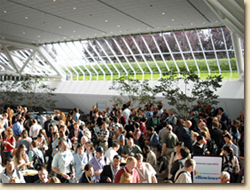
Opening Night Welcome Reception
Generously supported by eBioscience
Friday, May 13, 2011
6:00 PM - 8:00 PM
Moscone Center South Lobby
Don't miss the IMMUNOLOGY 2011™ Opening Night Welcome Reception generously sponsored by eBioscience, Inc. Come directly from the President's Address into the grand foyer of the Moscone Center to enjoy drinks and hors d'oeuvres, catch up with colleagues, and relax from your travels. It will be our great pleasure, with the generous support of eBioscience, to welcome you to the 98th AAI Annual Meeting and wish you a productive week at IMMUNOLOGY 2011™.
New Member Reception*
Friday, May 13, 2011
4:00 PM – 4:45 PM
New Regular and Trainee members joining AAI for the first time may take this opportunity to meet the AAI Council, the Membership Committee members, as well as other AAI leaders for casual conversation and refreshments.
* By invitation only
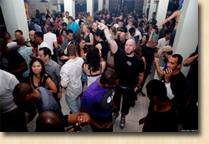
Young Investigators Party (YIP!)
Saturday, May 14, 2011
9:00 PM - 11:00 PM
Temple Night Club
Attention all graduate students and postdoctoral fellows! Join other young scientists for this hip networking event. You'll enjoy a relaxed but rockin' atmosphere to meet, network—and dance! Party includes snacks and beverages.
Note: Special event for Graduate Students and Postdoctoral Fellows. Badges checked at door. All guests must be 21 years of age.
President's Service Appreciation Reception*
Generously supported by BioLegend
Saturday, May 14, 2011
7:00 PM – 9:30 PM
AAI is grateful to the many members who have given their time over the past year to make AAI "tick". Their service included working on AAI committees, representing AAI in outside activities, reviewing abstracts or chairing sessions at the annual meeting, and serving as senior editors for The Journal of Immunology. A reception to say "thank you" is being held at the annual meeting.
* By invitation only
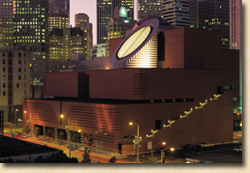
IMMUNOLOGY 2011™ Gala
"Celebrating Immunology"
Generously supported by BioLegend
Sunday, May 15, 2011
7:00 PM – 9:30 PM
San Francisco Museum of Modern Art
To take place in the San Francisco Museum of Modern Art, the IMMUNOLOGY 2011™ Gala will be a great celebration of immunology and the advances AAI attendees are making to the field. You'll enjoy music, refreshments, and opportunity for docent-led tours of the marquee roster of modern artists' works housed in the museum's stunning setting. With the gracious support of BioLegend, this is your opportunity to socialize with the scientists you've traveled far to see, relax, and unwind during your week of intense science.
© The American Association of Immunologists, Inc.
1451 Rockville Pike, Suite 650 | Rockville, Maryland 20852 | Phone: (301) 634-7178 | Fax: (301) 634-7887
Email: infoaai@aai.org | Website feedback: AAI Webmaster
